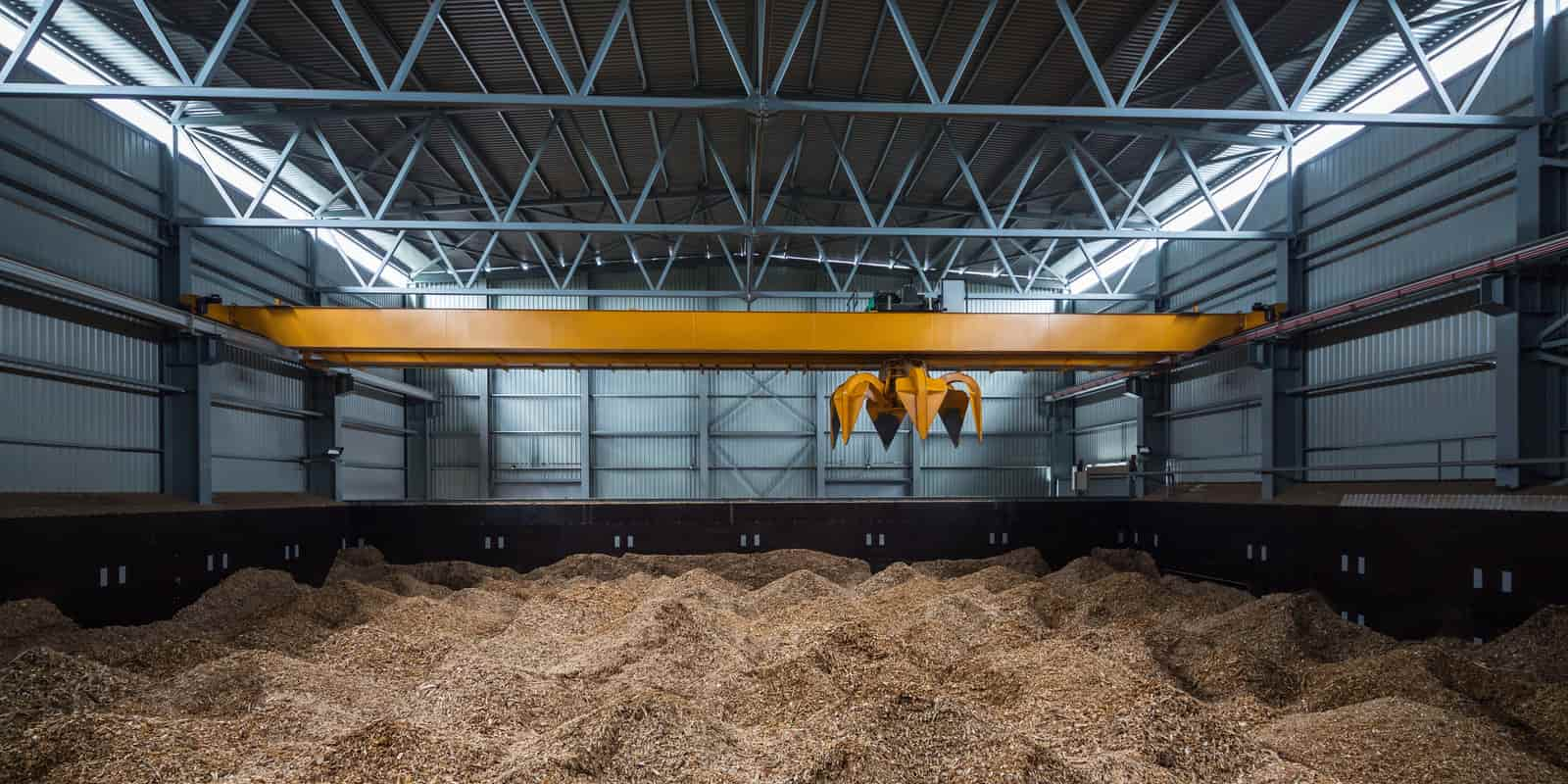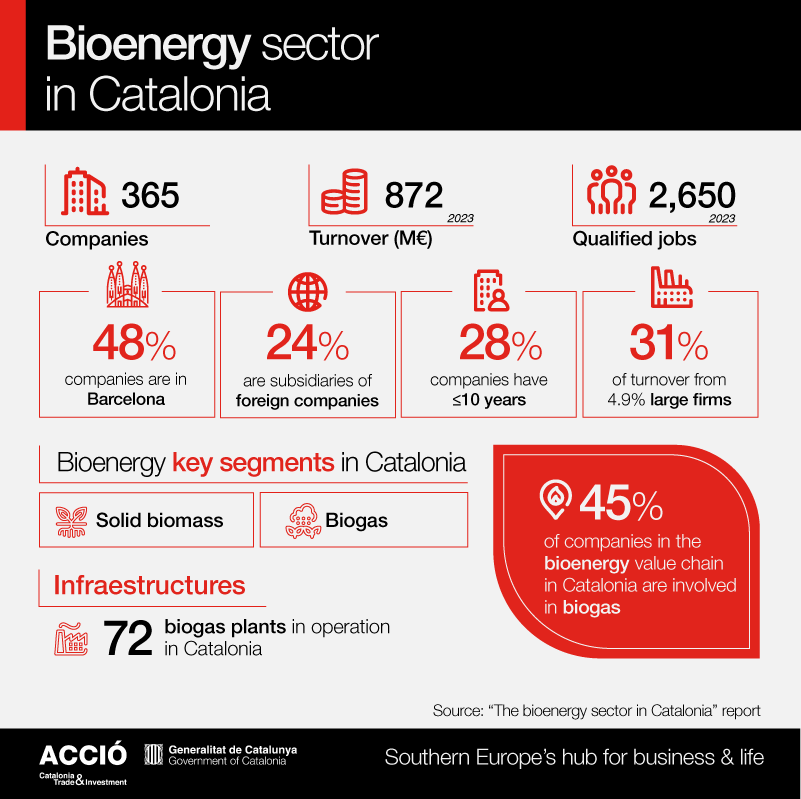“Sustainability is fully integrated into our strategy, and our Girona coffee factory is a clear example of circularity throughout the production process”
Jordi Llach, Nestlé Spain's CEO
The bioenergy sector in Catalonia comprises 365 companies generating a total turnover of €872 million and employing 2,650 individuals.

The bioenergy sector in Catalonia is made up of 365 companies with a combined turnover of €872 million and 2,650 jobs. These are the main findings of a study by Catalonia Trade & Investment, the Government of Catalonia’s agency for business competitiveness, offering the first comprehensive overview of the sector.
Produced in collaboration with the Catalan Bioenergy Cluster, the report highlights that bioenergy refers to renewable energy generated from biological materials. It includes the entire process: from resource procurement to energy recovery and the treatment of resulting waste. Bioenergy can be used for heating, cooling, steam, electricity, and transport fuels. The sector includes key categories such as solid biomass (e.g., livestock manure, urban organic waste, and forest biomass), biogas and biomethane, and liquid biofuels.
The report confirms this is a growth sector, with 28.4% of Catalan companies having been established in the past ten years. The bioenergy value chain is divided into three segments: resource providers (solid biomass or biogas), companies involved in transformation (including biofuel production, biogas valorization, consulting, and engineering), and distribution (to energy markets, bioproducts, and sustainability management). In Catalonia, according to the study, the value chain is largely focused on resource utilization and transformation, while auxiliary industries remain limited.
Over half the companies identified in the value chain specialize in solid biomass, accounting for 46% of the sector’s total turnover. Additionally, 45% of companies are active in the biogas segment. One in four firms (24.2%) are subsidiaries of foreign companies. Beyond the business base, Catalonia’s bioenergy ecosystem also includes associations, the Bioenergy Cluster, research centers, universities, and dedicated trade fairs and congresses.
“Sustainability is fully integrated into our strategy, and our Girona coffee factory is a clear example of circularity throughout the production process”
Jordi Llach, Nestlé Spain's CEO


365 companies

€872M in turnover

2,650 employees
The document notes the existence of 72 operational biogas plants across Catalonia, although the segment is still in development. As energy transition policies advance, the potential of these renewable sources is expected to grow. Most business activity is centered on biogas plant development and services, though often as a secondary activity, or for in-house waste management or self-consumption. The majority of technology used in biogas plants is currently imported, presenting opportunities for Catalan firms, which until now have mainly manufactured generic components, with few specializing in proprietary technologies.
Both the Catalan and Spanish governments are promoting strategies to boost biogas and unlock its renewable energy potential. According to projections, the Spanish market could produce 20 TWh of biogas annually by 2030, of which Catalonia and Northern Aragon could account for nearly 30% (5–6 TWh). By contrast, Catalonia produced just 0.577 TWh in 2019—highlighting the scale of potential growth. If production targets are met, the sector’s revenues could increase twelvefold.
Catalonia also has abundant raw material for biomethane production, including livestock slurry, agricultural waste, and food industry residues. This creates business opportunities while also addressing environmental challenges related to waste management and valorization—supporting the circular economy. Additionally, biomethane could offer competitive cost advantages over other energy technologies used in industrial processes.
Looking ahead, the sector in Catalonia must address challenges such as developing new biomass technologies, diversifying resource uses, and advancing the production of next-generation fuels. Talent attraction and training will also be key to driving growth. Meanwhile, companies will need to define differentiation strategies to offer added value in a competitive market. Other relevant factors include supply chain and logistics development, regulatory frameworks, and the emergence of new market segments.

Get our free report on the bioenergy industry in Catalonia and its applications in the sector.
16 Jul 2025
Decarbonizing Industry: Experiences in Hydrogen, Energy & Sustainability from Catalonia
27 Nov 2024
Míriam Guasch, Essity: "Catalonia is a strategic hub that reinforces our growth across Europe"
25 Sep 2024
Catalonia & the UK: a growing partnership in trade and investment
24 Jul 2024
Success Story: Messer's investment in Tarragona, Southern Europe's leading Chemical Hub